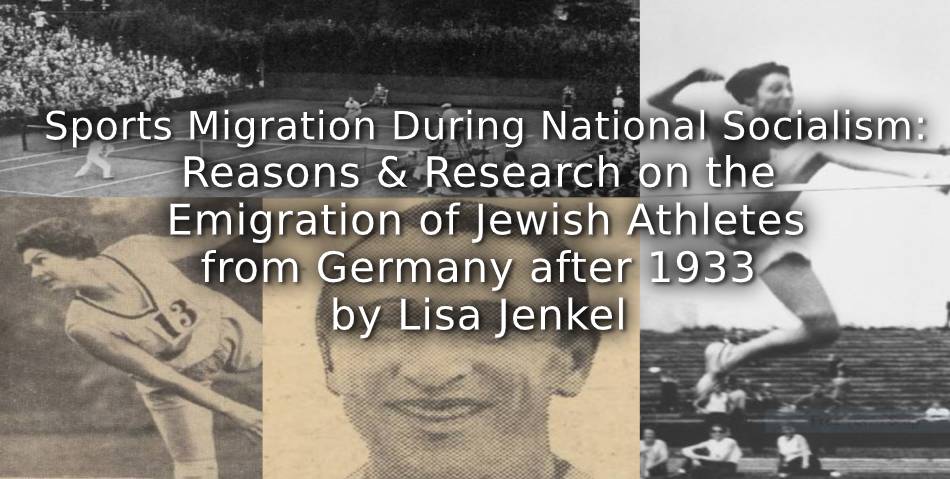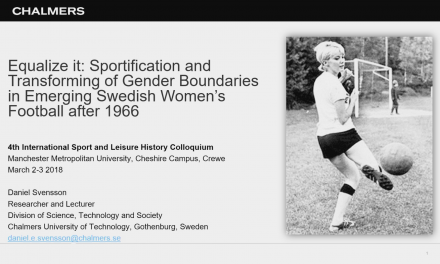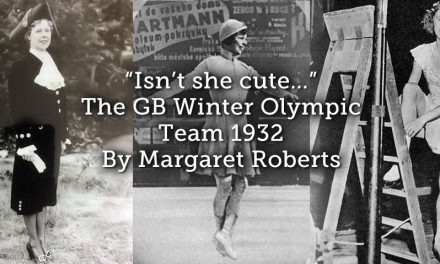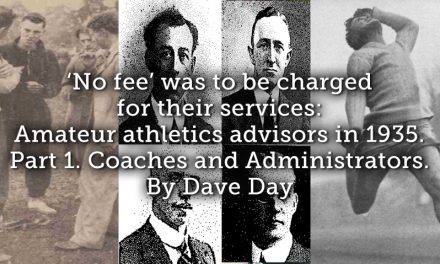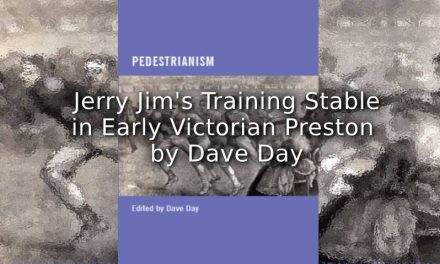“Thousands have emigrated from our ranks in recent years, some have already become champions in a new home, others have come together to form an ‘old-new’ community beyond the seas to continue competing together.”[1]
This report, printed in the sports section of the Jewish newspaper Der Schild, assesses the large number of athletes with a Jewish background that had left Germany during National Socialism up until 1938. Under the headline “Sport Companions Wander into the World”, the article mentions several emigrated sportsmen and -women who left Germany after the Nazis had seized power and lists their sportive achievements at the new destinations. Most of these athletes had been excluded from their former clubs in April 1933 and after. At this time, German sport became segregated in order to eliminate Jews from the public realm as well as to prevent displays of their physical ability in accordance with the National Socialist’s anti-Semitic ideology of the inferior Jewish race. Expelled athletes often found a new sportive home in the separate Jewish sports movement.
Exclusively Jewish sports clubs had begun to develop in the 19th century as a reaction to rising anti-Semitism in leisure environments, first as gymnastic clubs and later also as sports clubs. Initially, they had very few members as Jewish sportsmen and -women preferred the membership in interdenominational clubs, yet after 1933, due to the segregation of sport they grew significantly. Until 1936 the Nazis observed the strengthening of the Jewish sports movement somewhat passively. Thereby, they tried to avoid international criticism regarding their mistreatment of the Jewish population, especially after the segregation of sport had caused heavy global outcry and the withdraw of the 1936 Olympic Games was contemplated by the IOC. However as soon as the Olympics had ended, the Jewish sports movement and Jewish population in Germany in general faced even more severe cruelty and abuse. Eventually, following the horrors of the November pogroms 1938, Jewish sport was banned and all clubs dissolved. Many athletes and officials consequently lost their lives at the hand of the Nazis during the Holocaust.
Tennis Match Between Rot-Weiß Tennis Club (Berlin) & Stade Racing (Paris) From Left To Right Christian Boussus – Jacques Brugnon – Daniel Prenn – Hans Moldenhauer. 14 August 1929
Due to terrible maltreatment and discrimination around 270,000 Jews had escaped Germany before the second World War. Among these emigres were also several Jewish athletes, prompting an increasing the matization in publications of the sports movements or Jewish newspapers – such as the introductory quote. While a majority were passionate athletes, sport was not the decisive factor for their decision to leave Germany – it was rather their gradual disenfranchisement, loss of employment, persecution and more. However, for a few outstanding sportsmen and -women the segregation of sport had a major impact on their lives. And it decisively influenced the decision of some renowned Jewish athletes to emigrate from Germany in order to pursue their sports and oftentimes related careers in other countries. Three of these athletes whose emigration was largely affected by the role of sport in their lives, are the focus in this series of articles: Gretel Bergmann, Martha Jacob and Daniel Prenn. The following three biographical studies not only highlight the cruel injustice of the segregation and its devastating impact on athletes’ lives, but they also provide an insight into the sports motivated emigration of German Jewish sportsmen and -women. Moreover, all three athletes found their new sportive home in the England, therefore the articles will also elucidate on British immigration policies, the contemporary society and sportive culture in the United Kingdom.
Gretel Bergmann
In the past three decades research on the history of Jews in sport and the separate Jewish sports organisations in Europe and the US has increased. The emergence, development and forceful termination of the Jewish sports movement in Germany has been a dominant topic. Moreover, the development of Jewish sports associations and clubs in Europe during the early twentieth century has been studied repeatedly. Yet in the United Kingdom research on the history of Jewish Sport and Jews in Sport is marginal. There remain manifold aspects and studies to be done on the topic, particularly when considering the significance attributed to sport in the British society as well as its historically integratory and educational instrumentalization.[2]
One approach regarding the topic of Jewish sportsmen and -women in Europe and especially Germany are biographies. Here, historians have begun to study the lives of female and male Jewish athletes to recollect and foster an adequate remembrance of their stories which have mostly fallen into oblivion. Often the athletes’ histories were deliberately eliminated from public records at the hand of the Nazis in order to remove not only physical displays from the public eye but also accounts of sportive and physical achievements of Jews. In order to reverse this misdemeanour in sports past and achieve the belated commemoration of successful, record-breaking and important athletes as well as sport officials – many of whom were killed during the Holocaust – various biographies have been published.
The German Javelin Thrower Martel Jacob , training women in London. Battersea 9 March 1931
These previous biographies thoroughly examine the athletes’ development and the influence segregation of sport had on their lives. However, for those sportsmen and -women who decided on leaving Germany the watershed of migration is either merely alluded to or omitted all together. Yet for emigrants, leaving the country did not inevitably mean a simple evasion of the detriments faced in Germany. Instead it often involved administrative complications before emigration, confrontation with immigration policies in the destination countries – often influenced by considerations regarding international relations to Germany – and endeavours to integrate into a new surrounding that perceived the migrants foremost as hostile Germans and not so much as refugees – to name just a few issues. Research focussing specifically on international migration of German-Jewish athletes or even more generally exile studies which examine sport as a cultural, social, political and economic factor are, still, sparse to non-existent.[3]
The three biographies in this series are intended to highlight the fates and difficult pathways of three exceptional athletes who tried to find their new home in the United Kingdom – some with more success than others. Yet, what they all achieved in the country were sportive successes, ranging from winning national titles to setting new records. As Paul Yogi Mayer, himself a sports official from Germany who migrated to the United Kingdom in 1939, noted:
“Some of those who emigrated proved that if they could not be champions of sport in Germany, they could accomplish this goal abroad.”[4]
Article © of Lisa Jenkel
To read Part 2 of Lisa’s series – Daniel Prenn ~ Emigrations in the Life of an International Tennis Star: From Germany’s Celebrated Number One to Eviction Within a Year – Click HERE
References
[1] Der Schild, Friday 14 October 1938, page 5f. – „Sportkameraden wandern in die Welt“ [translated L.J.].
[2] Exceptions for further reading are these recommendable overview studies:
Toni Collins, “Jews, Antisemitism, and Sports in Britain, 1900–1939,“ in Emancipation Through Muscles: Jews and Sports in Europe, ed. Michael Brenner, and Gideon Reuveni (Lincoln: University of Nebraska Press, 2006): 142-155;
David Dee, Sport and British Jewry: Integration, Ethnicity and Anti-Semitism, 1890–1970 (Manchester: Manchester University Press, 2013);
David Dee, “’The Sunshine of Manly Sports and Pastimes’: Sport and the Integration of Jewish Refugees in Britain, 1895-1914,” Immigrants and Minorities 30, no.2/3 (2012): 318-342.
[3] Previous studies often examine certain sports within German(-Jewish) exile communities. One interesting study, translated to English, is:
Alfred Lichtblau, „Soccer and Survival among Jewish Refugees in Shanghai” in Emancipation Through Muscles: Jews and Sports in Europe, ed. Michael Brenner, and Gideon Reuveni (Lincoln: University of Nebraska Press, 2006): 171-186.
[4] Paul Yogi Mayer, “Equality – Egality. Jews and Sport in Germany,” Leo Baeck Institute Yearbook 25, (1980): 238.

